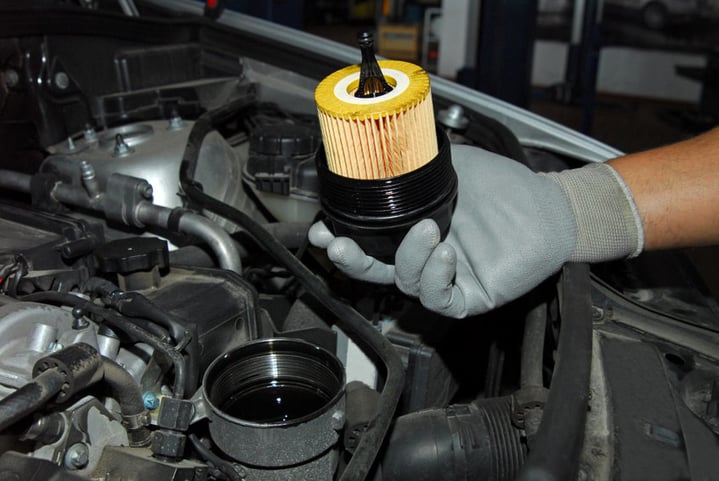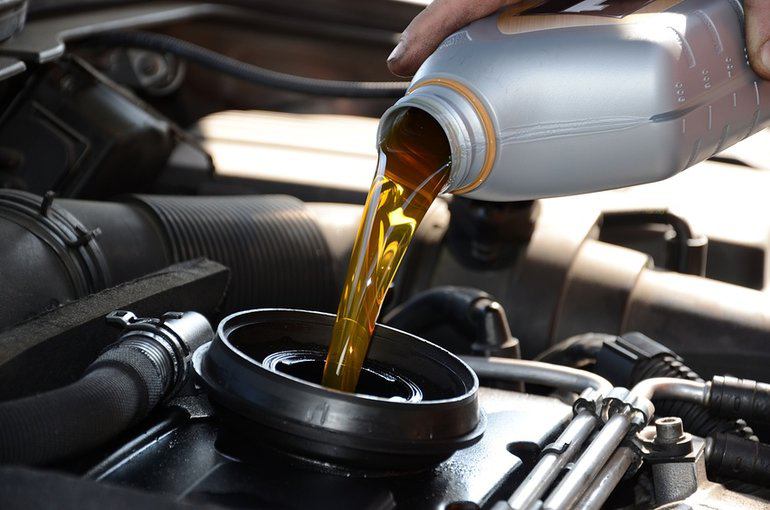Exactly How an Oil Change Enhances Gas Performance and Protects Your Auto
Regular oil modifications are an important aspect of vehicle maintenance that can significantly enhance fuel performance and guard engine honesty. By replacing old, contaminated oil with top notch choices, rubbing amongst engine parts is lessened, leading to enhanced operational efficiency and fuel usage. In addition, this practice assists eliminate dangerous deposits that add to engine wear in time. Comprehending the detailed relationship in between oil top quality and vehicle efficiency exposes not only the immediate benefits but additionally the long-lasting effects for your vehicle's life expectancy. The question remains: what details signs should you be aware of to establish when an oil adjustment is required?
Importance of Normal Oil Adjustments
Engine oil serves as a crucial lube, minimizing rubbing between relocating parts and protecting against excessive wear. Disregarding oil changes can lead to a host of concerns, including engine getting too hot, decreased fuel effectiveness, and eventually, costly repair services.
Moreover, regular oil adjustments contribute to optimal engine performance. Fresh oil ensures that the engine runs efficiently, enabling for better acceleration and responsiveness. This is particularly essential for automobiles that go through hefty use or operate in tough conditions. Furthermore, lots of makers suggest particular intervals for oil modifications, which need to be abided by in order to keep service warranty coverage and prevent possible voiding.
Exactly How Oil Top Quality Affects Performance
Exactly how does oil top quality effect the total efficiency of an engine? The high quality of engine oil plays an important function in keeping ideal engine feature.
Furthermore, quality oil consists of ingredients that improve its performance under varying conditions. These ingredients can include cleaning agents, which assist to clean engine elements and protect against sludge build-up, and anti-wear representatives, which shield essential surface areas throughout high-stress circumstances. The thickness of the oil is also essential; it has to stay stable across a variety of temperature levels to guarantee appropriate circulation and lubrication.
Using subpar or abject oil can lead to diminished efficiency, resulting in enhanced engine wear and possible overheating. Frequently examining and changing the oil according to producer specs guarantees that the engine runs at its ideal, guarding your investment in your vehicle.

Influence On Gas Efficiency
Top notch engine oil facilitates smoother engine procedure by decreasing friction in between relocating parts. When the engine oil is fresh and of superior quality, it maintains optimal viscosity, making certain that the oil streams properly and gets to all needed elements.
Conversely, degraded or low-grade oil can produce raised rubbing and resistance within the engine. This not just hampers performance yet likewise requires the engine to function harder, resulting in greater fuel usage. Routine oil changes aid maintain the oil's stability, making sure that it stays reliable in lubricating engine parts and avoiding accumulation of dangerous deposits.

Protecting Against Engine Deterioration
Keeping ideal engine efficiency is click resources mostly based on preventing deterioration, which can considerably expand the lifespan of the vehicle. Routine oil adjustments play a crucial duty in this precautionary upkeep technique. Engine oil acts as a lubricating substance, lowering rubbing between relocating parts, which assists to reduce wear. Over time, oil can end up being contaminated with dirt, particles, and steel bits, diminishing its performance.
When oil is not changed review frequently, it can cause enhanced friction, overheating, and ultimately, engine failing. Fresh oil, on the other hand, has ingredients that secure engine parts from corrosion and wear, making certain smoother operation.
Along with the high quality of oil, following the manufacturer's suggested oil adjustment periods is essential. These intervals are made to align with the car's details demands based on driving routines and conditions. Chauffeurs ought to additionally be aware of elements that may increase engine wear, such as extreme temperature levels, towing, and stop-and-go traffic. By prioritizing regular oil changes, automobile owners can dramatically decrease the risk of engine wear, improve performance, and inevitably reduce costly repairs, hence preserving the vehicle's value gradually.
Indications Your Oil Demands Transforming
Normal oil modifications are not just crucial for avoiding engine wear but likewise for acknowledging when your oil calls for substitute. A number of signs indicate that it may be time for an oil change, and being alert about these can assist maintain your vehicle's efficiency.

Among one of the most typical indicators is the oil modification light on your control panel. Oil Change Lockhart. If this light illuminates, it is a prompt to check your oil levels and take into consideration an adjustment. Additionally, if you see go to this web-site a dark, abrasive texture when inspecting the oil on the dipstick, it recommends that the oil has actually ended up being contaminated and is much less efficient in lubricating the engine parts
Unusual engine noises, such as knocking or ticking, might also signify that the oil is falling short to do its duties, possibly resulting in significant engine damage. If you detect a burning oil smell or see oil spots under your lorry, these might show leaks or extreme intake, requiring a prompt oil modification.

Verdict
The use of premium, fresh oil minimizes friction amongst engine components, lowering energy loss and promoting smoother operation. Timely oil adjustments prevent the buildup of hazardous contaminants that add to engine wear and getting too hot.